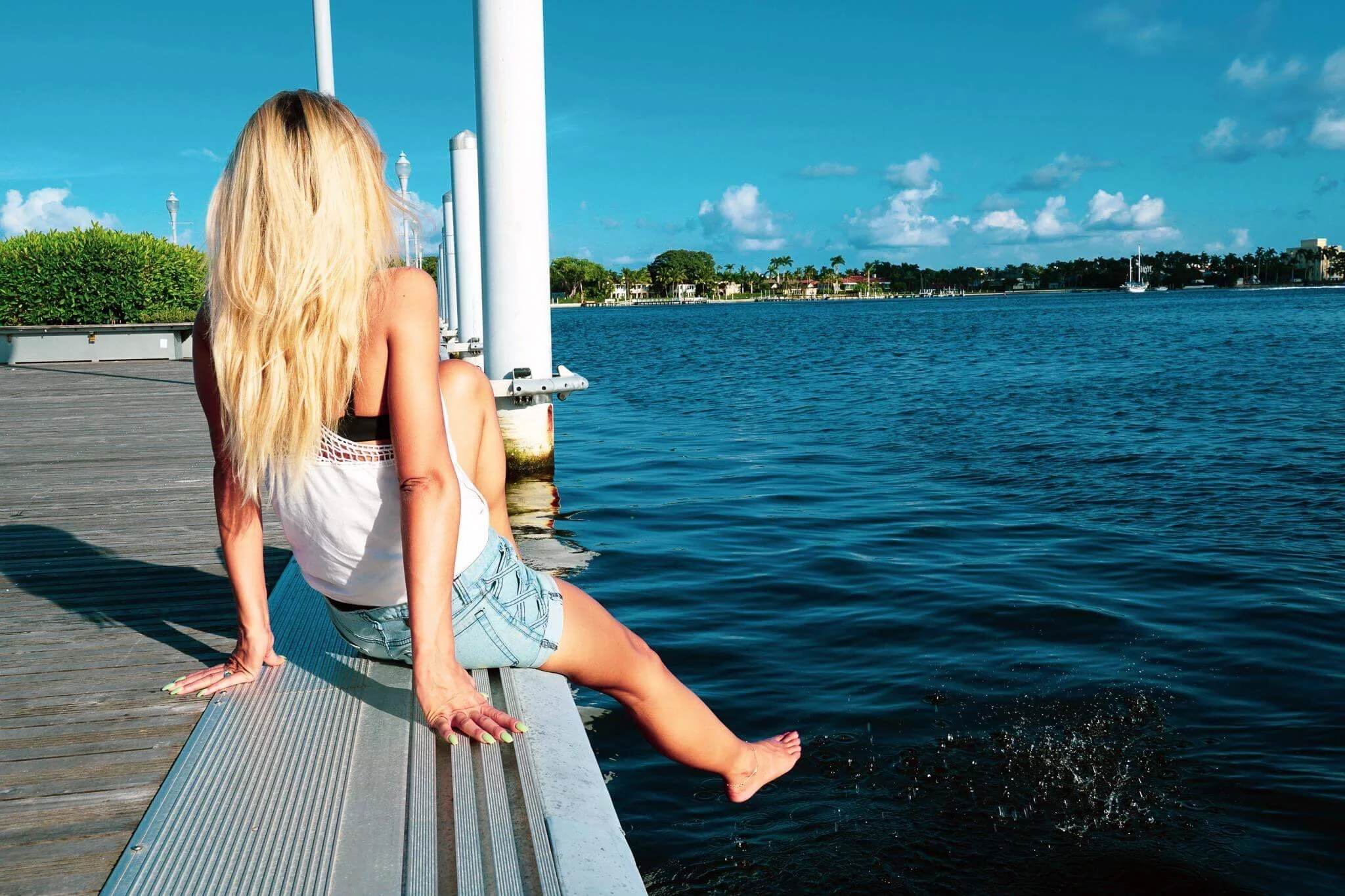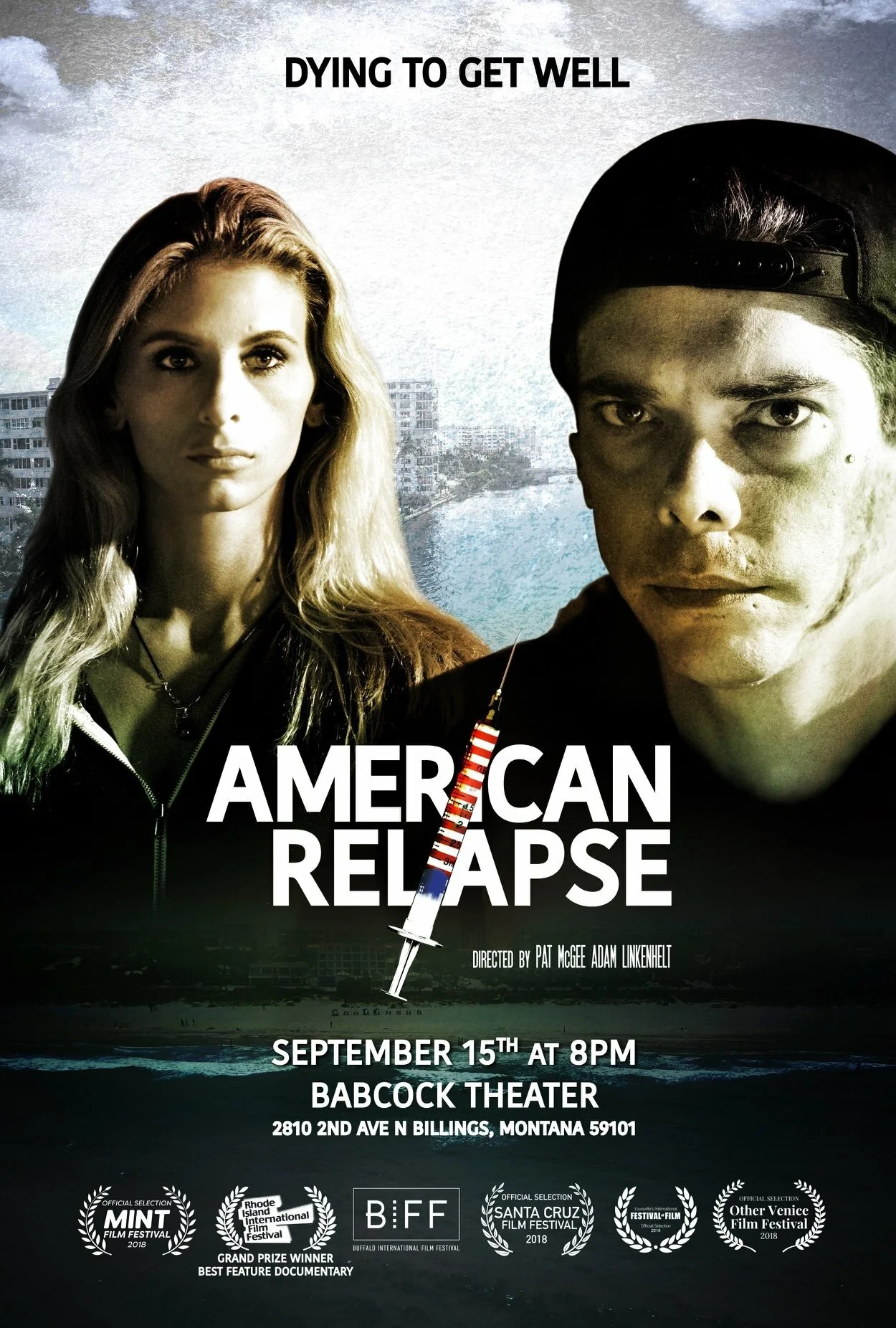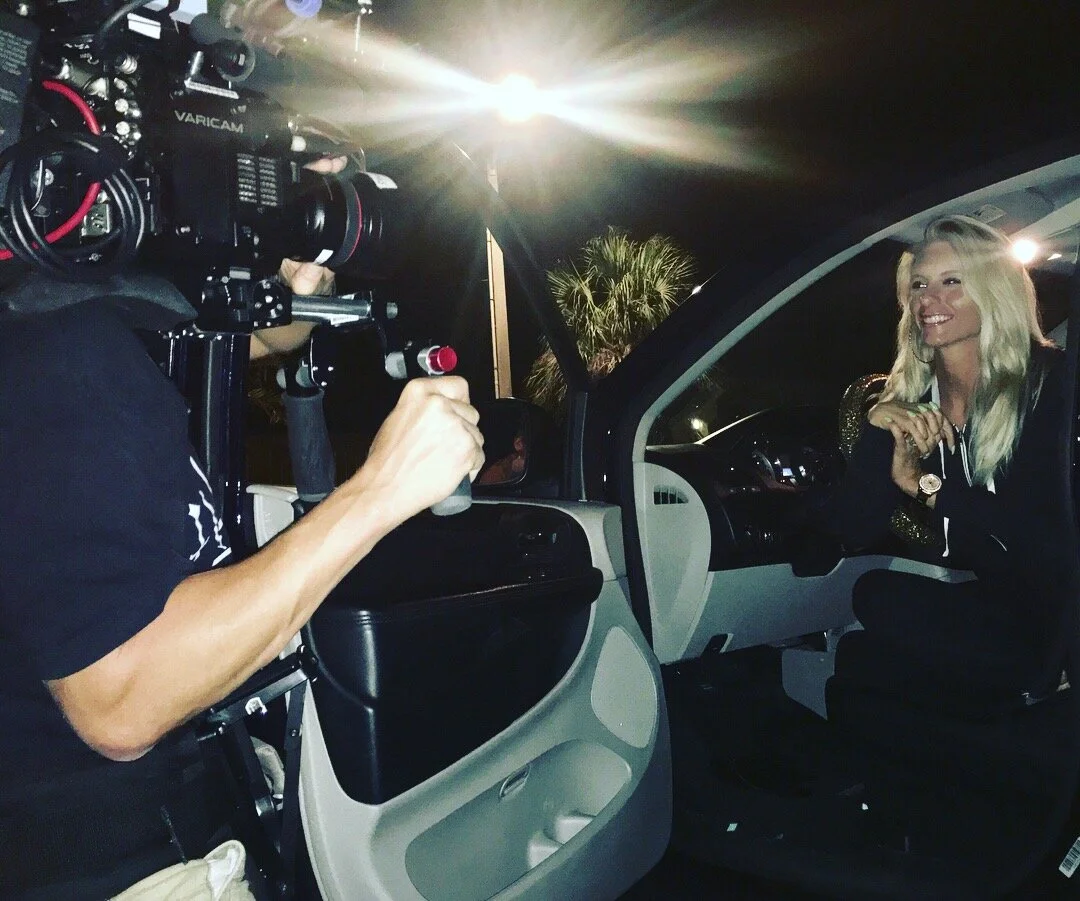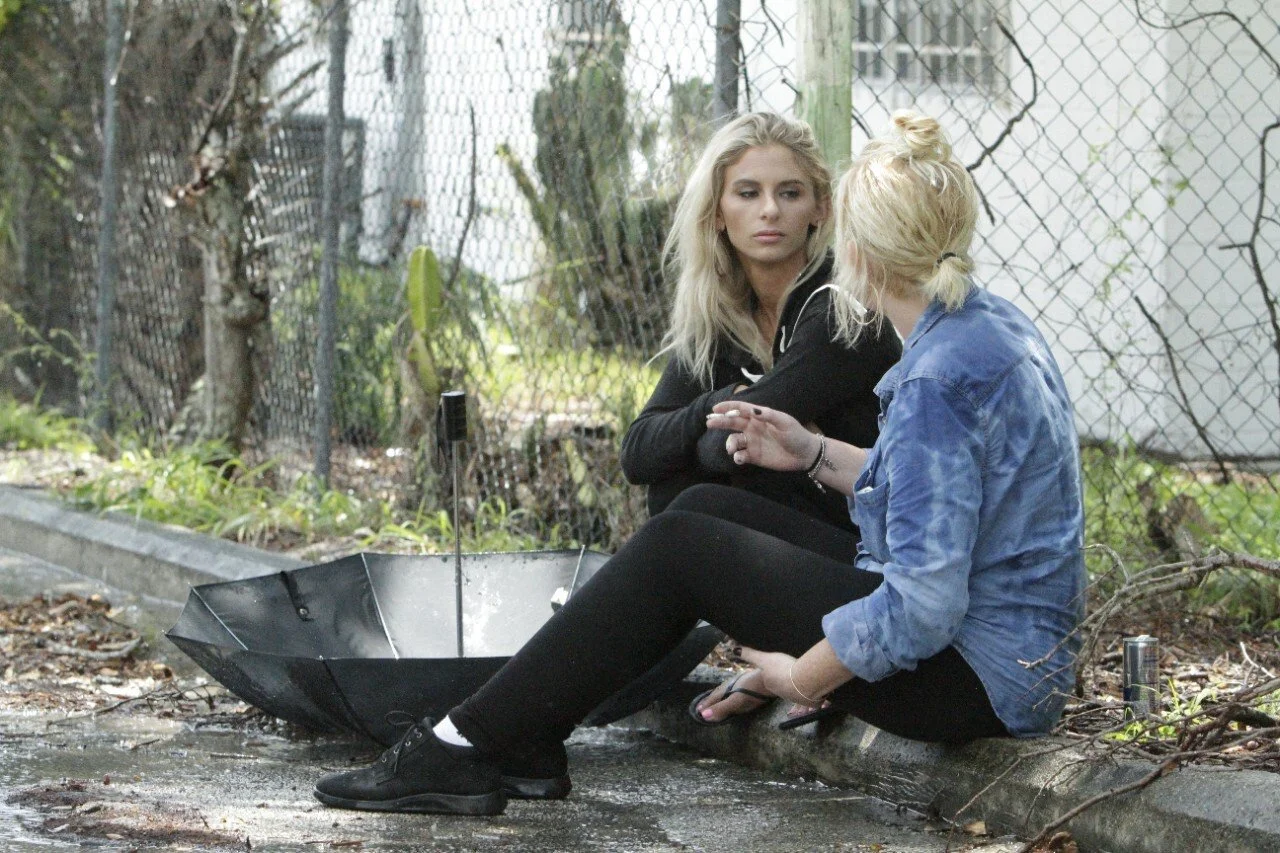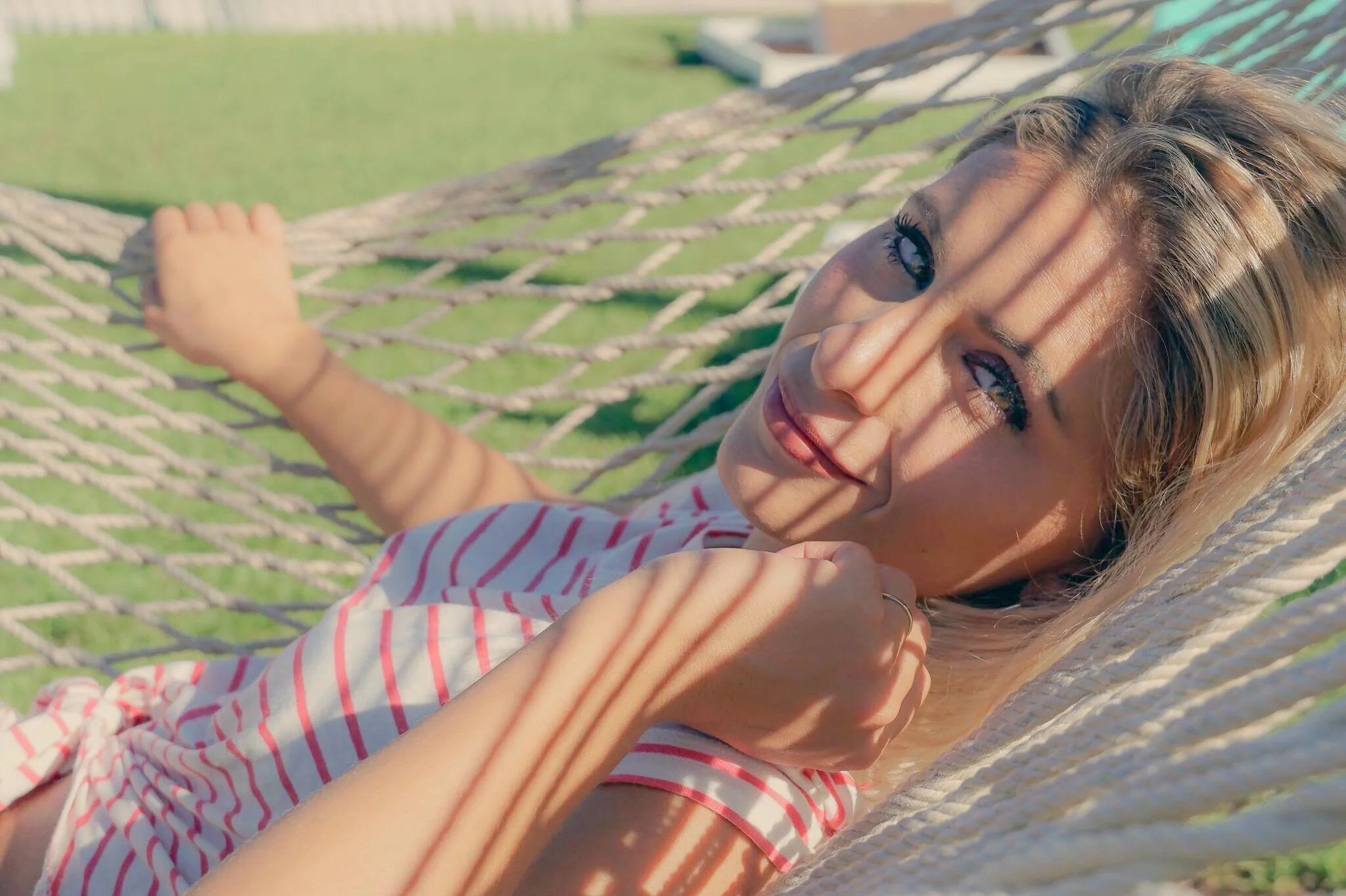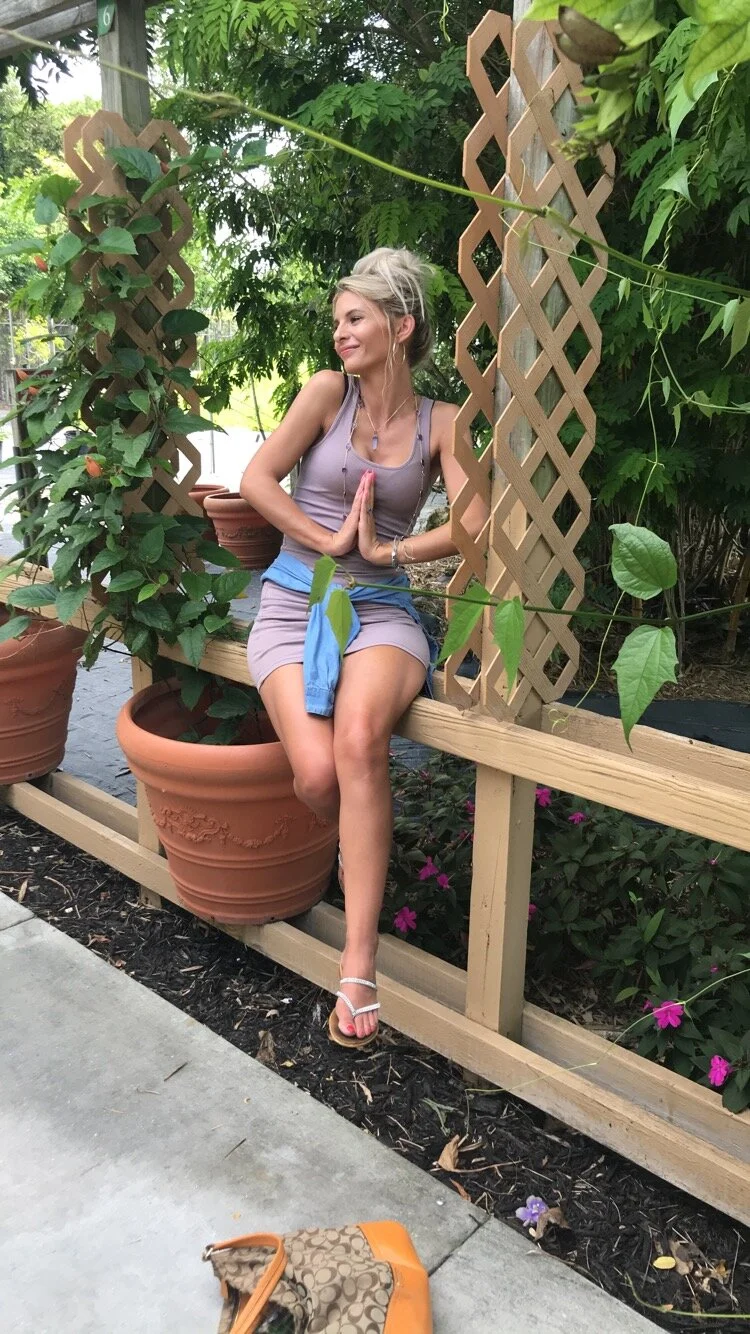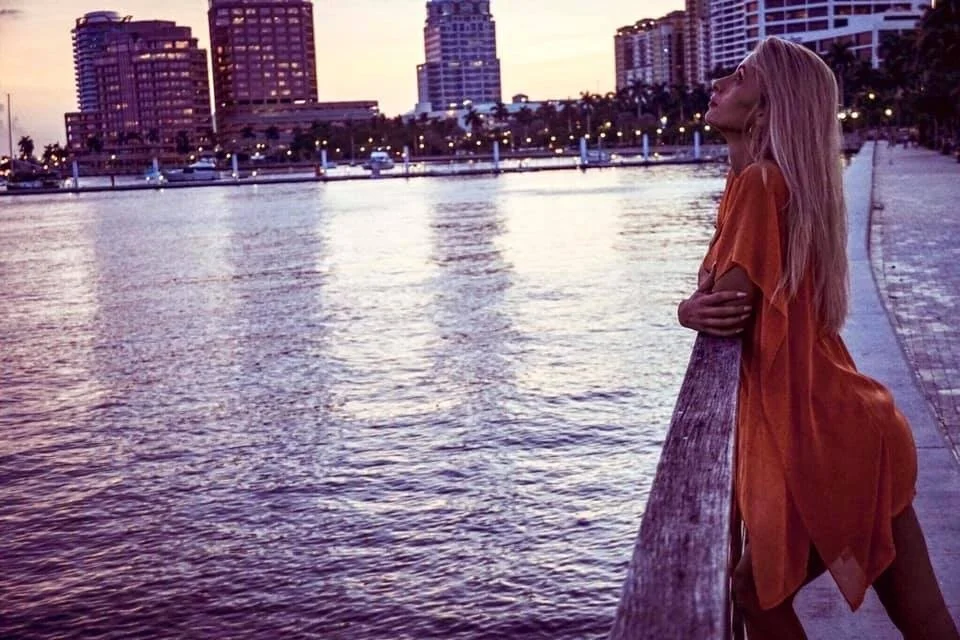Dopesick Nation's Allie Severino on the spectrum of addiction, being resilient in recovery, and treating addiction from the bottom up
meet allie.
her name is Allie Severino, but you could just as easily call her Allie Sunshine because her positivity is beyond infectious - words can’t do it justice. You may know her from Dopesick Nation and American Relapse, but she’s more than the face you see on your television screen. Day after day, she’s on the streets, working tirelessly to help individuals get the help they need, and to make the world a better place.. one city block at a time, literally. Odds are, she has already covered more square miles than anyone else (my best educated guess), but she’s nowhere near finished (actual fact). She speaks, she teaches, she loves, she hopes, she inspires... through and through, she’s making the changes so desperately needed in the addiction industry. We all need an Allie in our community and in our lives - she’s a game changer in every sense of the word, and I could not be more grateful to know her.
I hope she inspires you just as she has inspired me and many, many others. 💛
Earlier this year, I interviewed Brandon about his story with addiction and recovery. You’re also fighting the epidemic, but what you do is a little different: you’re in the trenches, working the front lines, every day. Tell me, what do you do?
First off, Brandon is awesome. He’s one of few in this industry I really respect.
“As far as what I do, I consider myself a walking, talking resource. I give or help find resources for people - now around the country!”
Before our show, Dopesick Nation, I mainly helped people in my local area here in south Florida, which I’ve been doing for about a decade. I grew up here and got sober here, which is why I try to help everyone - I made it out of these same streets and I feel it’s my responsibility to help others get out, too.
I actively go and look for people in need of these resources. I go out once or twice a week to hand out hygiene products, Narcan, ponchos, basically whatever.
And I just talk to the people.
I make sure our homeless population get important phone numbers and resources - same with anyone struggling with drug and alcohol abuse that I might run into. I do most of this in my free time. I do get donations to help, which is a Godsend. On my website www.allieseverino.com, I have a little donation button where people can say, “I want this $20 to go to housing or hygiene,” etc. Some people have been so sweet to send boxes of different things like chapstick and deodorant.
“I was just tallying up what we’ve been able to do this year and we have housed 6 people into sober living and handed out 78 ponchos and 520 hygiene bags! That means we have directly helped over 1⁄3 of the homeless in Palm Beach County! So a big thank you to everyone that helps with that!”
When I’m not literally walking around, I’d say a lot of what I do is over the phone. Sometimes I’ll just talk people through a problem... a mom whose son is using, a wife whose husband just overdosed. People are just looking for someone to tell it them like it is and help them find productive solutions. Since I grew up here, I feel I have that to my advantage. I’ve been helping more families with a process called “Marchman Act,” which is an involuntary mandate to treatment. I speak in schools, drug courts, and jails, and I recently started a little social media firm for local, small businesses, which helps pay my bills, lol.
The insurance model has created Junkie Hunters, and then there’s an even bigger problem if someone doesn’t have insurance. Within this frame of reference (insurance, treatment options), where do you think the solution lies?
In my opinion, it’s not even that easy - this whole system is a disaster. I wish I had a solid answer, but here’s a few things I believe would help: People that cannot afford insurance need to try to get Medicaid. That sounds basic, but if more people just had Medicaid they would have more treatment options. Many people are unable to up and leave their work, wife, kids, etc. for inpatient treatment.
Like… If you were using right now and wanted to stop… could you leave for 30-90 days? Maybe you could. I can’t.
I couldn’t.
Like, let’s say I had a drinking problem right now, which kills more people than anything… I would never be able to leave and be okay. What would I do?
Having to leave and put your life on hold sounds like a small sacrifice for achieving sobriety, but it still affects everything. It’s kind of a mental thing, too. Like, we both have cats. Who is going to take care of the cat? Every little thing… stop your mail, or else people will steal it. There are so many little, moving parts. It’s not as easy.
Right. There really are. I think that is one of the biggest hurdles for so many people, literally. I would not go away if my cats were not being taken care of. And when you get on the phone with a lot of these intake people, or admissions people, they’ll make you feel like that is such a dumb thing. And it kind of is, but it also kind of isn’t. It’s something that you care so much about. You don’t want to fuck that up if you’ve already fucked everything else up. And a lot of the people that I talk to are usually the breadwinners in their family, believe it or not. If they leave, what happens to their kids or wife depending on them? Because of that, people hold off getting help until they’ve lost the husband, kids, house, and job, which at that point, getting better becomes that much more of an uphill battle.
That’s why I’d like to see more outpatient programs. I’d like to see psychiatrists and doctors who specialize in addiction working at walk-in clinics! I like this idea because it takes away a lot of the fear, shame, and stigma people feel, and it could help with harm-reduction efforts, too. Many people still feel they don’t need help at all or that they can “do it on their own.” Some even fear “help” because that could mean losing their kids or a job. I think we need to build trust with these people so they feel secure reaching out. And this also goes back to their families - if your family member or friend is using, bring them some resources. You don’t need to say anything, but they’ll know you care and know who to call. If they could get some help or guidance before totally spiraling, I think that would help a lot.
In short: start a person earlier on a local, lower level of care and work up. I’m not sure how, but facilities should accept more insurance policies, too. Another huge hurdle is affordable safe housing for these people, which has nothing to do with insurance. Here’s another idea: let’s take all the abandoned prisons and turn them into long-term rehabilitation centers!
Yeah! In your opinion, what makes a good rehab center? What should people look for when choosing a rehab or detox facility?
This is another hard question. I suppose it’s like looking for a nursing home. If possible, have someone go visit before committing. Websites can lie, photos can be fake, DCF audits are planned, so check it out first. Talk to staff! Get the credentials of the owners and clinical team. For detox, they are all very similar, but the most important person there is the medical director. I’d ask about medication and then just make sure it’s nice and clean.
With a residential program... Is the facility clean? Where exactly is the housing if its a “PHP” program? Do they offer gender specific groups? What are the caseloads of the therapists, and what’s the aftercare planning like? How long have they been in business? Read reviews, but know there will always be a disgruntled patient or parent; if you see a pattern of complaints like, “I never saw my therapist,” or anything alarming come up over and over, I would search elsewhere.
I personally would trust a facility that answered all my questions professionally, has a professional online presence, and has been in business at least three to five years. Longevity of a business tends to mean stability.
“Then again, I went to a place that was an understaffed, underfunded state-ran facility that had black mold, and I’m still sober eleven years later! We don’t always have the luxury of choice!”
Wow. You help addicts all the time, and I think something I have found to be somewhat true is that people don’t get help until they want help. And everyone has a different rock bottom. How do you continue to give so much - time, resources, and your heart, not to mention how much you genuinely care about these kids - and not get jaded when someone says no, or doesn’t end up following through after you’ve set things up for them?
It’s honestly part of the job. I can tell a person’s willingness for help by what they’re willing to do to get better. If they have a list of requirements, unfortunately I can’t do much until they realize they are being unreasonable. Often, it’s the families; they call about a loved one using, rightfully scared for them, but I have to tell them if the person that is struggling isn't willing, or again, is living on the streets but won’t go to a state run center, “Either Marchman Act or remove yourself.”
“I’ve learned I can only help the willing; all else is insanity.”
Willingness is also something that is temporary. Patients that “pretend they want to get sober” and relapse... I don’t much believe in that. Addiction is a chronic disease that affects the mind and our judgement. Cravings can easily trick someone into thinking they can use just one more time. What will a drink hurt? But since our reward system is broken, we will keep up a behavior there hurts us... even when we don’t want to and even when we know it’s wrong. That guilt and shame prolongs the relapse further.
“I believe people want to get better when they say they want to help; I believe it even more if they do the work.”
Unfortunately feelings come and go. I can feel like I want to start today but if I don’t get into a community that supports that thinking, my mind can change tomorrow.
That’s incredible. Another thing I’ve come to realize is that so many social issues are connected. Addiction, homelessness, stratification and gentrification, lack of proper resources, the list goes on. And I was talking to a friend the other day about top-bottom reform - starting with laws and carrying them out - versus bottom-top, where you’re more dealing with people on an individual basis. You see the insurance side, the rehab side, and the people side - going in and out of treatment. When it comes to this epidemic, what do you think needs to happen?
So for the past 2-3 years I believe it’s been, every state gets money from the government. More than $9 billion in grants has been awarded to states and local communities to help increase access to treatment and prevention services. I know where the money goes in my community, but it’s all geared towards medication assisted treatment… suboxone, vivitrol, etc.
It’s not a bad thing. It’s really not a bad thing. But it’s probably not an answer, right? People are all fucked up on all sorts of shit. People are legit sex addicts, food addicts – they really have problems with other things. As addicts, we’re not processing our trauma properly; we’re not dealing with something, right? Balance wise, it’s so hard to live a balanced life in general – we’re not taught how to do it; we’re not doing it. Medication-assisted treatment is what’s being funded right now. And the problem is going to be this: it’s just for people on opiates, people who have an opiate problem, which granted, they usually are the ones seeking treatment because it makes your life so unmanageable so quickly. But what happens when we stop paying for it? And it’s still addictive, right? So before they went to the streets, someone should have talked to them about Suboxone, for example. It’s just a form of harm reduction. Which, harm reduction works. If you’re drinking every day and you’re going to this group… I knew this awesome guy who focused on harm reduction. If someone was drinking every day, out of control, and then they came in and drank three times that week, but they were smoking weed, that was an improvement. It’s not perfect, but it’s an improvement. They went from there, and it had a really high success rate because a lot of people are not going to commit to an abstinence- based lifestyle. That’s another issue: we are giving people these options of either get on medicine, yet if you’re on medication-assisted treatment, you’re not welcome in AA, at all. You’re definitely not welcome in NA, so you don’t have a support group. And then, if you choose abstinence, that’s great, but remember, it’s hard to attain. It’s great, and you’ll have a bunch of support. But then if you fuck up, what? You start all over? Because you feel the shame and guilt and remorse? And it’s like… really? You fucked up one time. I know what one fuck up can lead to, but with honesty and a supportive community, you don’t have to go back to the bottom.
“Like, let’s talk about the kid in the halfway house. “Oh my God, you drank one time.” It’s not that big of a deal. It is if it keeps happening, but if you’re honest about it, you’ve got to learn to pick it back up the next day. Bro, this is real life! In real life, you don’t get to start over every time you make a mistake; you have to learn to be resilient.”
And resilience plays a big part in life in general. You apply it to all aspects of your life. But it becomes a whole different ball-game when you apply that life skill to addiction in particular.
“The problem is we need to focus on all drugs... including alcohol.”
We had a cocaine epidemic, then crack, then opiates, research chemicals, etc. There is a deeper problem. We have lots of laws, so I’m not sure that’s the answer. Each community is different and maybe that’s where the solution is. Each community being forced to come up with a system that works for them. Maybe make drug courts more attainable, more sober living options, more long-term inpatient facilities. More work for people in recovery and those that have felonies. More affordable housing, health and wellness resources.
“
We need to live healthy, productive lives. People need a purpose and for purpose, people need an opportunity.”
Exactly. And I think you bring up a really good point regarding the current model and how relapses are addressed.
Yeah. This morning I drove down to Miami and I was at a women’s prison, Miami Correctional Facility, and I was there from 11 a.m. until 4 p.m.. It was really cool. I got to speak to all the women there - the ones that wanted to participate, at least. And I got to speak to the CO’s and the therapists there. It was just sad… we’re building more prisons but we’re not teaching anybody how to stay out of them. We aren’t giving them the life skills they need, and that’s why I was talking about how I want outpatient facilities to be larger and bigger and more attainable for more people, because that’s where the magic happens, you know? That’s where the rubber hits the road. Yeah, rehab is great. You get to sit in a group and talk to a therapist and that’s all well and good… until you get out and you have to start putting that stuff into practice that you’ve learned, and that’s where a lot of people lose it. And with the model that we have right now.. Okay, you get high. When you’re in that level of care, what happens? You go back to detox, back to treatment. Like, oh my God, they drank for two days, why are they going back through this entire system again? It doesn’t make any sense.
It reminds me of the childhood game, Chutes and Ladders, where you have to go all the way back to the bottom.
Yes! Right! It’s so crazy. And they might have a job, you know what I mean? Just because you drink one time doesn’t mine you’re out of it completely. With the current model, now you have to leave your job, move all your belongings again… I hate that. That’s one thing I think that needs to be done, that needs to stop. There has to be newer, different ways of treating addiction. And I really would like the idea of legit addiction specialist doctors being in a walk-in clinic.
And how do you think we as individuals can reduce the stigma? Because addiction is really affecting everyone - soccer moms, your neighbors, young kids who start out with sports injuries, grandparents, you name it. It’s everywhere.
It is everywhere and we’re not even talking about food, gambling, shopping, and porn addictions. The loved ones who are brave enough to tell their stories help break the stigma. And education - for me, it’s always education. That starts with community leaders being educated, politicians, school teachers, librarians, law enforcement, judges, court clerks, etc. There is more work being done on stigma now that upper and middle class families and communities have been torn apart... it’s the sad truth.
“‘Not my kid’ are the three most dangerous words. 88,000 people died from alcohol in 2017... that’s more than all opiates combined! This is a deeper problem than just stigma, but stigma reduction is unbelievably important. If one mom openly shares with another mom, that can save a life. And if someone in active addiction can see someone who is like them that is sober, that can give them hope and that’s what we need.”
And again, being resilient. When you’re young, learn it. That has a lot to do with entitlement, too. You’ll notice a lot of people that are in crisis aren’t able to handle anything. You’re like, “Oh my God, how did that happen to you?”
It’s insane. Especially… I wouldn’t say my age group. I’m almost 26. But younger, like 21, 22. They’re so fragile.
Even people that are 35! You’re like, “Oh my God, how’d you make it this far?”
Right? Like, “The store is out of milk but you are going to be okay.” Sometimes I feel like there’s something wrong with me for not getting rattled by little things.
I don’t know how you were raised, but it has to start somewhere in your childhood, right? You learn that it’s not that big of a deal. One time, I lost $100 at the grocery store. I used to go food shopping for my dad. He gave me $100, and I was probably like fifteen years old. I went, and I fucking lost the $100-dollar bill. I was like, “Oh my God, he is literally going to kill me.” I’m bawling crying, and I’m still doing drugs at the time; I don’t want my dad to like, murder me. I get home and I’m like, “Dad, I must’ve dropped it. I literally don’t know.” And he’s like, “Allie, it’s money. It doesn’t grow on trees, but it’s not that big of a deal.” I was like, “Really?” He’s like, “Yeah. Stop crying.” So, I think sometimes parents love their kids so much that their kids are getting sick, or not getting better, because of this overwhelming mom-love. Accept that everyone makes mistakes, but also teach your kids to be resilient.
I agree. Let’s talk about your documentary, which is incredible, by the way. How did you get involved with American Relapse? What was the process like?
Thank you for that! American Relapse was a real passion project. And it was really random. It all started with a phone call I received from an old classmate, Jaimie Manheimer. We took journalism together in high school. He and his brother Ian heard about the treatment boom in South Florida and had some questions; they asked me because they knew I had an addiction recovery magazine called “Fresh Start” - that was my first business I started when I was about 23. So of course, I was happy to answer because it really was a crazy time. They asked if I’d show them around, which I did. They weren’t paying anybody, so it was just up to you to show up. And you know, I’m down for whatever.
“I’ll show up for almost anything, because half of life is showing up. 90% of life is showing up.”
I show up and they were so scared – because this is back in the day with the really bad sober homes. They were the places that legit held the girls inside the houses. It was really bad. We were down these streets and we were going to these really bad houses, and these kids wouldn’t even get out of the car! They were like, “Alright, Allie, let’s just go! Nevermind, we’ll get it later.” They were so funny. I was like, “Okay.” And then they left. I didn’t hear anything from them for months, and then all of a sudden, one weekend they were like, “Hey, we’re on the other coast! Can we come by and film?” And that’s when we made American Relapse. It’s just so crazy that it was a moment thing. I was like, “I guess, sure.” They all showed up and they did a really good job. Me and Frankie, we didn’t even see the film until I think a year later, when we were almost done filming Dopesick Nation. On the last two days of Dopesick Nation, we watched American Relapse. I honestly never could have imagined it turning into what it has!
It really is incredible, and what I really liked about the documentary was that it was honest, but not exploitative. It was extremely raw, but it didn’t sensationalize any aspect of addiction, or what you do. Because I think my hesitation with a lot of addiction films or shows is that it can feel exploitative at times - it shows people at their very worst, and for some, it blurs the line between education and entertainment. And yet in a way, you have to put a face to the name to the numbers in order to reduce stigma and raise awareness. How do you feel about the approach you took with filming, and how were you involved in regards to the trajectory, presentation, and outcome of the project? How do you maintain the integrity and respect of the people you are filming with trying to present what addiction is and looks like in a truthful light?
Honestly it was nerve-racking at first. I had to trust these outsiders to do the right thing when it came to respecting the stories of not just the clients, but myself and Frankie as well. I am also very wary of addiction shows and films myself! I initially didn’t even want to do the project for two reasons: well one.. fear. I was nervous to be on camera, I was nervous to be blackballed from the industry I work in, I was scared ... but I knew the story had to be told and I figured, “What the hell? When I’m old, I’ll have this to see what I was doing at 26.”
“The film is a story from the bottom up - not the people with degrees or doctors or law enforcement - but from two recovering addicts on the street. What were 72 hours of our lives like? What would we see and encounter? We wanted to HUMANIZE addiction, show how the system works, show what addiction looks like and feels like, and that’s what I think is cool about the film - the multiple layers and points of view.”
The idea is to bring the viewer into the world of addiction and treatment. Bring some compassion and empathy into the world. Everything filmed was real, raw, and honest. From Frankie struggling to stay sober, my breakdowns, the patients stories... I hope it helps start an honest conversation about what’s happening right now. Don’t shy away from it because it’s uncomfortable. Frankie and I brought them into our world, and I know it was important for them as film makers to keep the integrity of everyone’s stories.
The ending absolutely got me. It hit home in a different way than other addiction films and shows. And I really liked it when they came back. I felt like Connor’s funeral was so impactful and so fucking sad. Just so sad. There’s not a time when I don’t watch that movie – and I had to watch it over 40 times in a row over 5 days in New York City – and I cried every single time at the end. It was just… so real and so fucked up what they did to that kid. They did a really, really good job. They really did. I’m grateful for them.
You did a good job, too. Also.. let’s talk about the so-called “boys club.” At first, hearing you talk about that was funny... and then it was sad. Because you deserve to be paid not just equally, but of a value that matches the work you put in. So can we just start a girls club? Cause I’m in.
Fuck yeah! I’m all about a girls club! Welcome to the girls club, ladies!
One scene that really hit me in the film was when you’re talking about the playground and waiting for your parents to find you, and they never did. First, that made me just want to be your friend more than anything and two, tell me more about you as a person - how you grew up, how you came to get involved in the addiction industry.
Aww yeah augh, that scene... well, I was mainly talking about my mom. I lived with her until I was 7, and then I moved in with my dad! I grew up really fast. You know, I moved a lot... 20+ times, lots of schools. I smoked weed for the first time in 5th grade and I was in the foster system at around 12. I moved to Florida and I was arrested by 17. I’m really grateful for my upbringing though - the good and bad.
Allie as a person... Well, I’m very inquisitive. I love to laugh, have fun, and make people smile. I enjoy my cats, yoga, art, sleeping in, lol. I’m pretty simple.
“After I got sober, I had a chance to learn who I was, and learn what I wanted to do with my life… at a minimum I just try to do the next right thing to the best of my ability.”
You got sober at 18. And something I’ve noticed about our country's approach to age and drinking - you have to be 21 to legally drink, and yet at 18 you’re an adult who can vote. You go off to college at 18 where it’s almost a rite of passage to go nuts and off the rails. Moderation isn’t taught; the conversation never even goes into the addiction model, or gateway model. I know for me, we had to take a class that taught us about alcohol poisoning, but nothing about how to tell if you might have a problem, or alternatives to partying, or even where meetings or support groups are held in case you want to talk to people who are in a similar situation. Narcan isn’t addressed as openly as it should be, either. Do you think college age or universities are a good entry point for really having honest discussions about addiction and creating that educational background? Or is it too late, since so many people first see the signs of substance abuse or addiction when they are children?
I think it’s absolutely too late. Kids need to be educated when they are still at mom’s hip - way before high school, because addiction starts with experimentation, Like I said earlier, more people die from alcohol than any other drug. Most people experiment in high school and don’t know the consequences, or how to use safely. I’m not the fun police, but people need to know that they have a chance of having a genetic predisposition to addiction. They may react differently than their peers to substances. They need to know the signs of alcohol poisoning, opioid overdose, etc.
On top of that, prolonged use changes our brains; our reward system is rewired and now we are continuing to use despite negative consequences. Even if addiction isn’t in our family, EVERYONE will become physically dependent if they use opiates, alcohol, benzos etc. everyday; there will be withdrawals. It doesn’t mean you’re an addict, necessarily, but you need to pay attention.
Exactly. And you recently posted about cutting ties in order to grow. Change is scary for a lot of people - what gives you the courage to make the big leaps of faith?
I have perfect trust in my higher power, who I chose to call “God” because it's easier. I don’t go to church; I’m not religious, but I am spiritual.
“
I know I’ll always be okay... I will make it happen. I think more people need to have faith in themselves - YOU’RE GOING TO BE OKAY! I really want to do what I feel is right.”
I don’t want to work for a facility - at all - especially if our visions don’t align. There is so much hate in this industry, within the industry. That’s why I'm working so hard on the digital marketing because I enjoy it and I see these “advocates” online and they’re all paid to send people to their facility, and that’s why I’ve been doing digital marketing.
“I want people to have no doubt my intentions are genuine. We need to take chances in life. Freedom is a wonderful thing.”
How do you balance your personal sanity with helping others all the time?
Who told you I was sane?! Lol. Seriously... I take my time in the car or whenever to be alone and do things that make me happy. Even though helping others can be stressful, it’s extremely rewarding. There’s nothing like the relieved voice of a parent or hearing from that girl or guy who was broken and is now rebuilding... I mean there’s nothing like it. I can’t, and I don’t, take credit for anything. It’s not me - the person does the work. I just tell them what I know, and give words of encouragement.
Is there anything you want to say to debunk the myth that you can’t have fun sober?
I have had really good times before I got sober; it wasn't all bad. But I’ve NEVER had as much fun as I have had in sobriety... like laughing until I can't breathe, trips I'll never forget.
I mean, like, I cannot articulate the fun, joy, freedom, and life i've experienced - you don't know what you're missing!
You also went back to school - tell me a little bit about what for, and what you plan to do with that.
Yes! Going back to school has been one of the best decisions I've ever made… and I resisted it every step of the way. My friends just pushed and shoved until I signed up - I’m grateful for good friends! My math final is next week. I can’t wait for that to be over.
But I hope to be able to do more with a degree. I’m going right now for business, but that could change. I just feel like it would provide me with more opportunities to be of service. I always say education is the answer; I would be a hypocrite if I didn’t continue learning and growing myself.
And on top of everything, you do have a YouTube channel! What has that journey been like?
OMG! I LOVE MY YOUTUBE! I need a partner though! ISO a YouTube buddy! It’s honestly so fun. It’s a hobby but I need to be more consistent! Learning to edit and tell stories is just fun… it makes me happy!
It’s a cliche question, but where do you see yourself in 5 years?
So the last time I was asked this question I was 24 - about 5 years ago. I said “I hope to have a huge magazine… like People magazine… but for sober people!” Lol. And now I have a movie and television show! I could have never imagined this at all. So, who knows? Maybe I’ll be mayor!! Lol.
“I just want to be happy, healthy, and possibly a college grad!”
What is one thing everyone should know how to do?
Change a tire!
And what does a day in your life look like?
Controlled chaos. Every day is different! That's what I love most… I can go from lunch with the police chief to sitting on a bench chatting with a sex worker within the hour. This ability to converse with so many walks of life has impacted me beyond words!
Lastly, what does sobriety mean to you?
“Freedom.”
seven questions with allie severino:
I can’t go a day without… caffeine!
Everyone should see… American Relapse (available on Hulu, Amazon and YouTube) lol!
Life is better with a little… kitty (or a big one). 🐱
Everyone in their 20s should… get used to change... and embrace it because it’s likely to happen a lot!
One insider thing to do in Palm Beach County… Peanut Island!
What the world needs right now is… more goofiness. Life’s hard enough; let’s not be hard on ourselves.
One way to spread love is… random acts of kindness. Leave the room in a better condition than when you arrived.
You can follow Allie on Instagram here and Twitter here, and don’t forget to check out her YouTube channel.
Be sure to look at www.allieseverino.com to learn more about Allie, and learn more about treatment resources, too.
American Relapse is now available to watch on Amazon Prime, YouTube, and Hulu.
Please consider donating to Fresh Start Initiative to help those in recovery :) x
All photos courtesy of Allie Severino.


